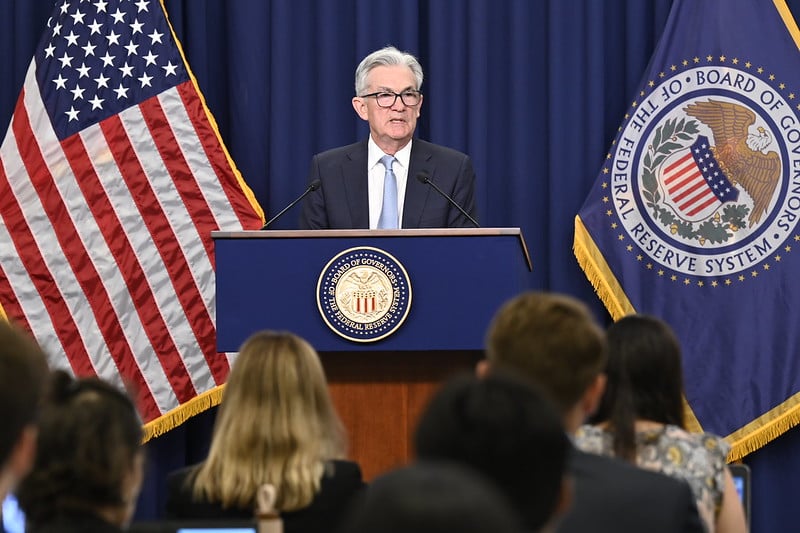From Jackson Hole, Wyoming, USA, the world’s central bank rulers declared war on inflation. Which will translate into more pain in the future.
The message from Jackson Hole is that the world’s top financial officials have been loud and decisive: rampant inflation is here to stay and taming it will require extraordinary effort, most likely a recession with job losses and shock waves through emerging markets.
Central banks needed to be decisive. They had spent decades building their credibility on the “skills and art” of fighting inflation, and losing this battle could shake the foundations of modern monetary policy.
Based on this, there is no longer the slightest doubt about the course of interest rates after the speech of Federal Reserve Chairman Jerome Powell, who used the annual economic seminar to declare war on inflation, vowing that the central bank will use its tools “aggressively” to attack rising prices.
Powell’s speech came as a surprise to many analysts who had hoped he would chart a less aggressive course toward further rate increases for fear of pushing the fragile economy into recession.
They believe there are indications that inflation in the United States may have reached its peak and is declining, and thus tightening can be eased so that the economy does not fall into a recession with global repercussions.
It is clear that the views of these analysts were incorrect. Powell’s speech was the most aggressive in months, arguing that high interest rates will continue and that he will not be influenced by two months of data. “The historical record strongly cautions against premature easing,” he said.
Everything Powell said in the annual Economic Forum means that the Bank of England is very likely to be more aggressive with its raising of interest rates.
This is evidenced by the tough message also sent by the European Central Bank and other central banks in Jackson Hole about the need to rein in inflation.
A member of the Executive Council of the European Central Bank, Isabelle Schnabel, said in a speech that everyone wanted to know the future plan of the central bank, and that central banks around the world are threatened with losing the confidence of the public.
The central bank must now act aggressively to combat inflation, “even if we enter a recession. We have no choice but to continue down this path.”
“If the public expects central banks to lower their guard in the face of risks to economic growth, that is, if they abandon their fight against inflation prematurely, then we risk seeing a sharper correction in the future,” Schnabel added.
European Central Bank officials will discuss on the eighth of next September the size of the increase in the interest rate that may be appropriate in the framework of their plans to curb inflation.
Some argue that a 75 basis point increase should be at least part of the discussion. The Board of Governors raised interest rates last July by half a percentage point.
Some of the discussions at Jackson Hole
The head of the Swiss National Bank, Thomas Jordan, said that structural factors in the economy may contribute to the persistence of high inflation for years to come and that it will become more extensive. He warned that “there are indications that inflation is increasingly spreading to goods and services that are not directly affected by the epidemic or the war in Ukraine.”
The head of the German Central Bank (Bundesbank) considered that “the story is very clear. Inflation is very high, so the answer in such a case is also clear.
This is what central banks have to do in such a situation. We have to raise interest rates.”
Bank of South Korea Governor Ri Chang-Yong sees a great opportunity for Korea and other emerging Asian economies to return to the environment of declining inflation and a return to growth that dominated the pre-pandemic period.
Meanwhile, Bank of Japan Governor Haruhiko Kuroda detailed an economic situation in his country that is very different from that of Europe and the United States, “We are living in a somewhat miraculous situation, as we are currently witnessing inflation of 2.4 percent. But this is almost all due to the global rise in prices of commodities, energy, and food”.
Gita Gopinath, the first deputy managing director of the International Monetary Fund, said that inflation in the United States will continue for at least another year or two.
It is true that central banks have declared war on inflation at all costs, but the reality is that in some areas they do not have complete control to combat inflation. For example, rising energy prices, as a result of the Russian war in Ukraine, creates a supply shock on which monetary policy has little effect.
Excessive spending outside the control of central banks by governments also exacerbates the problem.








